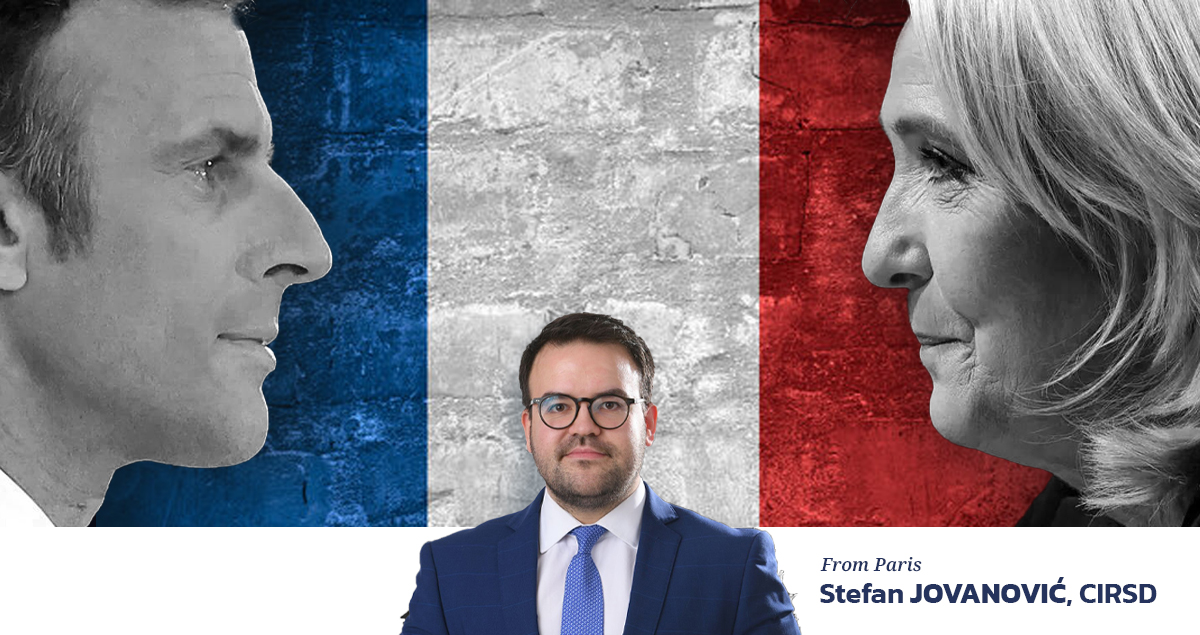PARIS, JULY 2024
French elections are over. No one won the French elections, and no one has anything close to an absolute majority in the National Assembly. Surprisingly, the left's New Popular Front (NFP) and President Macron ended up with more seats than Le Pen's Rassemblement National!

The French legislative election has delivered a chaotic and unpredictable result, plunging the country into a long period of political paralysis. In a plot twist worthy of a French political drama, the left-wing New Popular Front (NFP) defied polls and expectations by beating Marine Le Pen and Jordan Bardella’s National Rally party for the top spot in France’s snap election on Sunday, winning 188 seats in France’s 577-seat National Assembly.
For more than half a century, France’s political elite maintained an effective firewall, known as the "cordon sanitaire,” against extremist political groups. The political elite again succeeded in mobilizing voters in the famed 'cordon sanitaire,' but the firewall also showed signs of fractures. Rassemblement National (RN) won 10 million votes, the New Popular Front 7 million votes, and Macron’s party 6.7 million votes. Although strategic voting helped prevent a right-wing takeover, the fractures in the 'cordon sanitaire' are evident.
Governing Challenges Ahead
France now faces the prospect of deadlock and paralysis. Divided, the National Assembly is not governable unless there is an agreement between the New Popular Front (NFP) and Ensemble, who have spent years fighting hard. LR - the previous backup force - and the RN have already said that they would refuse to build an agreement with the macronists.
Potential scenarios include forming a coalition government, establishing a minority government, or appointing a technical government to manage essential functions. Each option presents challenges and requires significant negotiation and compromise.
Macron’s first decision is to appoint a new prime minister. He has already delayed this process by declining Gabriel Attal’s resignation, asking him to stay in office for now.
Macron’s first strategy is likely to be assembling a “rainbow coalition” spanning the moderate left, greens, and center. This coalition would have to agree on a minimal program and a non-partisan prime minister. However, this approach faces significant hurdles, as coalition partners demand concessions and greater autonomy in governance. It’s a possible but complex solution. In this scenario, Macron would need to negotiate with moderate left, green, center, and center-right factions to form a stable coalition. At the heart of Macron’s strategy is to eject LFI - party of Mélenchon - from the NFP and form an alliance with Socialists, Greens, and Communists. Some Macron allies may want to include members of Les Républicains. But many center-left requests would be unacceptable for the right wing. Raphaël Glucksmann, a rising social democrat politician who represents the moderate wing of the New Popular Front, immediately split with Mélenchon. He declared that France’s next government should be led “neither by Robespierre nor Jupiter” — a thinly veiled code to say the next prime minister shouldn’t be Mélenchon (an admirer of Robespierre, architect of France’s post-Revolution “terror”) or anyone from the camp of Macron, who famously compared himself to Jupiter during his first term.
Minority Government
A minority government can be formed without an absolute majority, relying on ad hoc support from various parliamentary groups for specific legislation. This was the case for Macron's previous governments led by Elisabeth Borne and Gabriel Attal, which managed to govern with a relative majority. The government would face constant uncertainty, as it would need to negotiate support for each bill. Opposition parties could block key legislation, leading to potential gridlock. This approach also risks frequent use of a constitutional mechanism allowing the government to pass bills without parliamentary approval, which can be controversial and undermine democratic processes.
Technocratic Government
If political deadlock persists, a technocratic government consisting of non-partisan experts could be appointed. This government would manage essential functions and implement consensual reforms, drawing support from different blocs in the Assembly. Such a government lacks electoral legitimacy and may struggle to maintain long-term stability. The reliance on technocrats can also distance the government from the electorate, potentially leading to public dissatisfaction.

Future of Rassemblement National
Although RN gained significant ground, winning 50 more seats than in 2022, it did not achieve a majority. Marine Le Pen may well feel that this was a good election to have lost. She can focus on preparing her campaign for the top job in 2027 without having to get her hands dirty in government now. Moreover, her matinee-idol No. 2, 28-year-old Jordan Bardella, who threatened to outshine her after leading the RN to the top spot in the European elections and consolidating that surge in the first round of legislative elections on June 30, will be off to Brussels to sit on the backbenches of the European Parliament rather than entering the Hôtel de Matignon as prime minister and a potential rival to her.
The coming months will be crucial in determining how France adapts to this new reality and whether it can achieve a functional and effective government amidst profound political divisions. President Emmanuel Macron's attempt to curb Le Pen’s right-wing momentum through a snap election backfired. The election delivered a chaotic result, with no party taking enough seats for a majority in parliament, plunging French politics into turmoil that could last months. Meanwhile, Marine Le Pen can now focus on preparing her campaign for the top job in 2027 without having to get her hands dirty in government.
Stefan Jovanović is a political expert currently working at the Center for International Relations and Sustainable Development (CIRSD). He formerly served as an MP in the Serbian National Assembly and Serbia's representative at the Parliamentary Assembly of the Council of Europe











